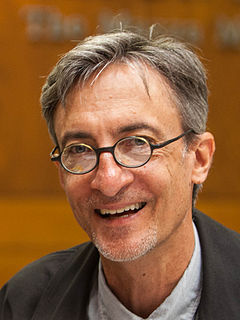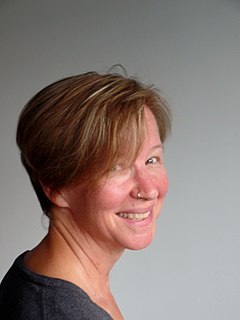A Quote by Chris Raschka
With any book, I try to find where the manner of the making of the book is appropriate to the matter of the subject.
Related Quotes
The distinctions of what makes a book one genre or another can sometimes be a bit muddy, but generally it's a matter of projecting who the audience will be, which is a judgment that's based on the subject matter. 'Mainstream' is the cleanest label for a book that draws readers of both sexes and from a wide age-range.
I began writing books after speaking for several years and I realize that when you have a written book people think that you're smarter than you really are if I can joke. But it's interesting. People will buy your book and hire you without reading the book just because you have a book and you have a book on a subject that they think is of interest to themselves or e to their company.
I have no reverence for any book that teaches a doctrine contrary to my reason; no reverence for any book that teaches a doctrine contrary to my heart; and, no matter how old it is, no matter how many have believed it, no matter how many have died on account of it, no matter how many live for it, I have no reverence for that book, and I am glad of it.
One of the things I try to do is try to make repetitions, rhymes, and mirrorings across the subject matter of my own books so that the chapter titles and the epigraphs and pictures all kind of form a tapestry. In this book, I retell fifteen of the stories. You have the critical frame, and then you have these rosettes like the motif in a carpet.
In my couple of books, including Going Clear, the book about Scientology, I thought it seemed appropriate at the end of the book to help the reader frame things. Because we've gone through the history, and there's likely conflictual feelings in the reader's mind. The reader may not agree with me, but I don't try to influence the reader's judgment. I know everybody who picks this book up already has a decided opinion. But my goal is to open the reader's mind a little bit to alternative narratives.
Finding yourself in a hole, at the bottom of a hole, in almost total solitude, and discovering that only writing can save you. To be without the slightest subject for a book, the slightest idea for a book, is to find yourself, once again, before a book. A vast emptiness. A possible book. Before nothing. Before something like living, naked writing, like something terrible, terrible to overcome.








































